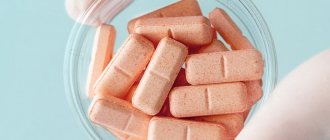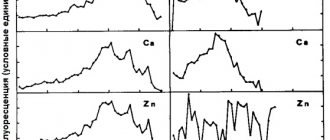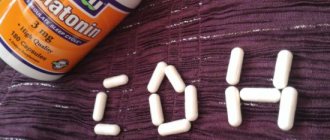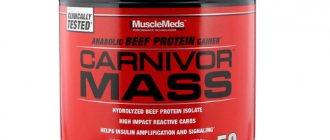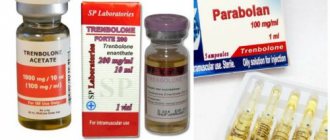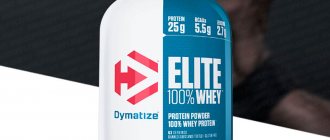Beta-alanine (English Beta-alanine or β-Alanine) is a natural non-essential amino acid, the amino group of which is in the β-position. In the human body, this substance is part of biological compounds such as anserine, pantothenic acid, or vitamin B5.
Unlike α-amino acids, beta-alanine does not participate in the synthesis of proteins or enzymes, but significantly affects the level of carnosine. It also has other beneficial properties that make it useful for professional athletes, as well as women and men.
Beta Alanine: Amino Acid
Beta-alanine is a beta amino acid that was discovered about 100 years ago. In 1911, Russian biochemist Vladimir Gulevich isolated carnosine from extractive substances of muscle tissue, and then discovered this amino acid in it. Despite its success, the first works were published only after the scientist’s death in 1938.
In the human body, beta-alanine appears as a result of the breakdown of carnosine. Also, amino acid synthesis occurs in the liver, and its highest concentration is observed in skeletal muscles. During metabolism, it breaks down to acetic acid.
It is worth noting that the International Union of Pure and Applied Chemistry (IUPAC) beta-alanine 3-aminopropionic acid.
Beta-alanine: in foods
Beta-alanine is found in food (up to 2 g of amino acid per 100 g of product). The largest amount of the substance can be obtained by consuming:
- meat (beef, horse meat, lamb);
- low-fat sea fish (chum salmon, pink salmon);
- peanuts, seeds;
- cheeses (hard varieties, feta cheese, goat cheese);
- legumes (lentils, soybeans);
- aspic.
These products must be present in the diet. This will help maintain normal amino acid levels in the body. But, if a person lacks beta-alanine or needs an increased concentration of the substance, then dietary supplements cannot be avoided.
Description
To increase muscle endurance, the amino acid interacts with histidine. After carnosine is released into tissue, a person is able to perform more exercises and withstand numerous physical activities.
A study of the effectiveness of beta-alanine in sports was carried out in 2005. Untrained people were asked to take 1.6 to 3.2 g of the amino acid per day. After several days of observations, the following conclusions were made:
- Beta-analine delays the moment of neuromuscular failure.
- The amino acid accelerates muscle recovery and tissue regeneration when damaged.
The product is used mainly for heavy strength training. Its main functions: reducing muscle fatigue, increasing the ability to perform heavy loads, and faster tissue restoration.
Beta-alanine is now included in pre-workout supplements and can be purchased at sports nutrition stores.
Beta-alanine: properties
Beta-alanine has many properties, the main one of which is a significant increase in the concentration of carnosine in muscles. This improves performance during physical activity and increases muscle mass.
Other properties of the amino acid include:
- regulates blood sugar levels;
- enriches muscles with energy after it is converted into glucose in the liver;
- takes part in the management of vegetative processes, thereby reducing the unpleasant symptoms of menopause in women;
- removes metabolic products (ammonia);
- stimulates the immune system and provokes the production of immunoglobulins;
- has a positive effect on brain function and improves memory;
- stabilizes hormonal levels.
Beta Alanine: Applications
Beta-alanine is used in various cases. Basically, the amino acid is needed by athletes who regularly engage in heavy physical activity. Additionally, beta-alanine are beneficial for:
- professional bodybuilders to improve the quality of training;
- women during menopause;
- men to improve physical health;
Also, taking amino acids is indicated for diseases:
- hypoglycemia (lack of blood sugar);
- low pressure;
- immunodeficiency.
Thus, beta-alanine helps representatives of both sexes cope with age-related changes and decline in the function of the reproductive system, and also improves athletic performance.
Effect on the body
Dietary supplement is used in the field of health. The amino acid is necessary for everyone, but it is especially important for athletes involved in bodybuilding, women during menopause, and people suffering from increased fatigue. Studies have shown that beta-alanine supplements improve the physical condition of the body. Taking amino acids is indicated for a whole list of conditions.
- When engaged in intense training, increased load, building muscle mass while burning fat. The function of the nutritional supplement in this case is to compensate for the lack of protein received by the body, and the substance, unlike a purely meat diet, puts less strain on the kidneys. The amino acid, by increasing oxygen in cells, promotes rapid muscle growth.
- With intense brain activity. The substance increases endurance, helps to endure stress more easily, and can be used to correct chronic fatigue syndrome. The amino acid improves memory, helps you fall asleep easier in the evening and wake up in the morning. In case of nervous exhaustion, the drug increases appetite and helps reduce the negative effects of stress.
- Women with menopause, especially those suffering from frequent hot flashes and impaired thermoregulation. Amino acid peptides preserve youth by regulating cellular processes, improve skin tone, complexion, and reduce irritability and nervousness.
- In cases of depression, amino acid preparations are prescribed as part of complex therapy, taking advantage of its properties to enhance the effect of serotonin reuptake inhibitors, improve the anaerobic state of cells, and brain activity.
The dietary supplement will not cause harm if taken correctly. The body transforms the substance into acetic acid and excretes it in the urine. However, you should not take amino acid dietary supplements uncontrollably; you should consult your doctor before starting a course of therapy. The diet when taking amino acids should include fruits and vegetables to compensate for the additional protein load on the kidneys.
- Folk remedies for acne
- 1st trimester screening - interpretation of results. Biochemical blood screening and ultrasound examination of a pregnant woman
- Cucumbers with chili ketchup for the winter
Beta-alanine: action
The biological effect of beta-alanine is that, by increasing the volume of carnosine in the muscles, it maintains a constant level of acidity in the muscles. The amino acid prevents acidification, which can occur during intense exercise and lead to muscle wasting.
In addition, beta-alanine blocks lactic acid that accumulates in the body. Thanks to this, a person gets tired more slowly, receives a sufficient amount of energy and maintains a good mood throughout the day.
Beta Alanine: Tingling
As the dosage of beta-alanine , a slight tingling sensation under the skin, or paresthesia, may occur. These sensations occur within 15-20 minutes after taking the dietary supplement and last 1-1.5 hours. The appearance of tingling is due to the fact that the amino acid affects the peripheral nerves and irritates them. This phenomenon is normal and indicates the effectiveness of the supplement.
Paresthesia usually resolves within a few weeks of starting the supplement. In some patients it does not occur, because it is individual and depends on the sensitivity of skin receptors.
Side effects
Based on many clinical studies of the results of taking beta-alanine in maximum doses (6.4 g for 2-3 months), it was found that it does not affect the levels of hormones (testosterone, GH, cortisol) and does not pose any health risks. In this case, the effect of beta-alanine can manifest itself in some negative reactions:
- paresthesia (tingling) due to irritation of peripheral nerves;
- redness of the skin due to dilation of blood vessels;
- rarely – mild nausea caused by gastrointestinal irritation.
Such symptoms usually appear 15 minutes after administration and persist for 2 hours. They are completely safe and only indicate that the supplement works. But if such sensations cause discomfort, then you need to reduce the dosage and do not take the drug on an empty stomach.
Beta-alanine: in bodybuilding and sports
Beta-alanine is actively used in sports. It acts as a muscle tissue buffer, so it is useful for athletes who engage in anaerobic (strength) exercise. By increasing endurance and performance, the amino acid improves the quality of training and has a positive effect on muscle growth.
the beta-alanine supplement were noted :
- neuromuscular fatigue occurs more slowly;
- additional strength and energy appear for long-term workouts (therefore it is often included in pre-workout complexes);
- eliminates muscle pain after sports;
- recovery from injuries is accelerated;
- slight weight loss due to increased performance.
It is worth noting that for athletes, cyclists, and swimmers, the nutritional supplement is absolutely useless. Also, the substances are harmless and do not affect the hormonal composition of the blood (cortisol, testosterone).
Coenzyme Q10, taurine and arginine help support the body during heavy physical activity.
Beta-alanine (β-Alanine or beta-alanine)[edit | edit code]
Beta-alanine (β-Alanine or beta-alanine)
- is a natural beta amino acid in which the amino group is in the β-position. IUPAC name: 3-aminopropionic acid. Unlike its steric counterpart, α-alanine, β-alanine does not have a chiral center.
β-alanine is not included in the synthesis of large proteins and enzymes.
In the body, beta-alanine is formed as a result of the degradation of dihydrouracil and carnosine. It is part of the natural proteins carnosine and anserine, and is also part of pantothenic acid (vitamin B5), which is part of coenzyme A. In the body, beta-alanine is metabolized to acetic acid.
Biological effects of beta-alanine[edit | edit code]
Supplementation with beta-alanine leads to a significant increase in carnosine concentrations in muscles.[1] Research has shown that carnosine is an important buffer in muscle tissue that prevents acidification during intense exercise.[2] Its contribution to the overall buffer system ranges from 10 to 20%. As you know, increased acidity is one of the main factors in muscle wasting.
Carnosine has also been shown to increase calcium channel sensitivity, leading to an additional increase in muscle contractility.[3]
Beta-alanine in sports[edit | edit code]
Enhancing Endurance with Beta-Alanine (Carnosine)
A study presented by Dr. Jeff Stout at the Society of Sports Nutrition's 2005 annual conference looked at the effects of beta-alanine (1.6-3.2 g per day) on working power during exercise. region of the fatigue threshold in untrained men. The results showed a 9% increase in the fatigue threshold and suggested that beta-alanine supplementation delayed the onset of neuromuscular fatigue.
The supplement is effective in relieving post-workout muscle soreness and has been proven to speed up recovery from injury.[4]
Beta-alanine manifests itself mainly as a protector of muscle tissue and a powerful buffer, so it is most needed by athletes facing anaerobic loads, including bodybuilders, since by increasing endurance, beta-alanine indirectly helps increase the intensity of training, and This means muscle growth. For track and field athletes, beta-alanine is of no value, as recent studies have shown. [5]
The supplement does not affect the concentration of blood hormones (testosterone, GH, cortisol) in training athletes.[6]
Increased endurance and cognitive functions[edit | edit code]
A 2014 study by Hoffman JR on soldiers[7] showed that a 4-week course of administration had no effect on mental performance, but increased strength endurance, aiming speed and shooting accuracy.
The authors emphasize the high prospects of using beta-alanine among military personnel to increase mental performance and physical endurance under stress.
A 2020 ISSN review by Eric T. Trexler, Abbie E. Smith-Ryan, et al.[8] critically reviewed the latest literature on the use of beta-alanine in sports and its mechanisms of action. The authors came to the following conclusions:
- Taking the supplement for 4 weeks (4-6 g/day) significantly increases the concentration of carnosine in muscles and thus acts as an intracellular pH buffer.
- Beta-alanine does not cause side effects at recommended doses, other than paresthesia (tingling). This effect may be reversed by reducing the dose to 1.6 g or by using sustained release formulations.
- Taking 4-6 g of beta-alanine daily for at least 2-4 weeks improves physical performance, with a particularly pronounced effect during peak physical activity lasting 1-4 minutes.
- Supplement prevents neuromuscular fatigue, especially in older people
- The effect on strength, endurance (with prolonged exercise for more than 25 minutes) and other positive effects remain questionable.
Beta-alanine: for men
Beta-alanine is effective for men of all ages. Amino acid can make the body stronger. This is especially true for athletes whose constant training is associated with high energy costs and increased endurance.
Not only athletes are convinced of the beneficial properties of the supplement. Any man, especially during the period of declining sexual function, can use it to improve his health and prolong his youth. Beta-alanine has a positive effect on mental activity, hormonal levels, and also stimulates the immune system.
Interesting! Beta-alanine supplements are widely used among military personnel who need mental alertness and physical stamina.
Fish oil, acetyl L-carnitine and horny weed are also beneficial for men's health.
Beta-alanine: for menopause for women
Beta-alanine is necessary for women during menopause. Despite the fact that it is synthesized by the body, with the onset of menopause it becomes insufficient for the female reproductive system. Deficiency of this substance leads to metabolic disorders and nervous system disorders.
Beta-alanine helps women combat the following unpleasant menopausal symptoms:
- insomnia;
- heat;
- depression, mood swings;
- increased sweating;
- a sharp increase in excess weight;
- attacks of weakness and decreased performance.
In addition, the amino acid is an antioxidant and removes free radicals and ensures the normal course of chemical reactions in nerve cells. This is a natural substitute for hormonal drugs that is absolutely safe for the female body.
Nutritional supplements with beta-alanine are well tolerated by patients; they do not affect the functioning of the circulatory system and do not provoke the development of heart and vascular diseases. Unlike many drugs, when taken for a long time, β-alanine does not cause drowsiness or loss of concentration.
Beta-alanine and its action, indications for use
Often, with the help of patients during menopause, specialists use drugs containing beta-alanine, an amino acid that is always contained and produced in the female body, but when menopause occurs, it practically ceases to be produced. And to control thermoregulation, you have to deliver it from the outside, taking certain drugs containing it. Inside the body, the amino acid fights hot flashes, headaches, increased sweating, and also helps a woman fight fatigue by removing lactic acid from the muscles, preventing their fatigue. If we shorten all the information provided, we can conclude that beta alanine allows you to completely get rid of or reduce the following signs and symptoms of menopause: fatigue of the body, decreased attention and concentration, decreased brain activity during menopause, decreased immunity, the immune system of a woman during menopause , reduction of hot flashes during menopause, excessive sweating and other problems.
Beta alanine also helps normalize concentration, eliminate absent-mindedness, relieves drowsiness, relieves the effect of fluid retention in the female body, helps relieve swelling and prevents excess weight gain during menopause. Beta alanine during menopause helps remove lactic acid from the body. It is because of lactic acid, which accumulates in the muscles, that a woman feels extra tired. Beta alanine during menopause also reduces the production of histamine in the female body and relieves the effect of increased fatigue and drowsiness. During menopause, the doctor may also prescribe hormonal contraceptives, such as hormonal birth control pills
It is very important for a woman with symptoms of menopause to know that without undergoing a series of diagnostics it is impossible to choose a method of treating menopause, because Not all women may be suitable for hormonal OCs in the fight against the symptoms of hot flashes and other signs of menopause
That is why you should first consult with a specialist, a gynecologist, and only then choose hormonal or non-hormonal drugs to treat the symptoms of menopause.
Beta Alanine: capsules
1). Beta-alanine is most common in capsule form. Now Foods offers Beta-Alanine (750 mg, 120 capsules). It contains a patented form of amino acid, the effectiveness of which is manifested during intense physical activity.
The supplement has also been shown to delay the onset of muscle fatigue and reduce recovery time. This helps you achieve high results in sports and increase your strength.
Recommendations for use: take 3 capsules 2-3 times a day. Take with water or other liquid. The interval between doses should be at least 2 hours.
The product is approved for use by adults only. There may be tingling sensations, which are absolutely harmless. Pregnant women, during lactation or when taking medications, it is advisable to consult a doctor.
How to use?
The instructions for the use of beta-alanine in sports indicate that the amino acid must be consumed in the form of a powder with peptides. The dosages are not as high as with pure administration of the additive. This is explained by the fact that in its pure form, beta-alanine quickly breaks down in the gastrointestinal tract and is excreted from the body; accordingly, to maintain the required level, it is necessary to take a larger volume of the drug.
It is recommended to take the supplement in a volume of 0.4-0.8 g at a time every 6-8 hours. The time interval between doses should be as uniform as possible. The daily dosage varies between 3-6 g. It is allowed to take break days during which the amino acid is consumed in a reduced volume 2 times a day.
The amino acid is consumed for at least 4 weeks, it is recommended to continue saturating the body for up to 12 weeks. It is during these periods that up to 80% accumulates, and the athlete can train longer and with greater efficiency.
After completing a course of 3 months, every 2 weeks the concentration of amino acids in the blood decreases by 2%.
Beta Alanine: Powder
Beta-alanine is no less popular .
2). This dietary supplement is produced by Primaforce “Beta-Alanine, Unflavored”. The package contains 200 g of pure substance without flavorings. It increases strength, reduces fatigue and accelerates muscle growth. These are the main indicators of successful training.
Recommendations for use: take 2 scoops before training and the same amount after. On rest days, take the same amount 1-2 times a day between meals.
When is it better to replace creatine with Beta-alanine?
Use Beta-alanine when you need to enhance speed performance or short- to medium-term duration of high-intensity training.
For example, Beta-alanine is extremely effective in any strenuous (without rest) exercise that lasts 1-5 minutes. You might argue that creatine supplements would do the job just as well, but let's look at one example. One of the first published studies on Beta-alanine states:
- one group took creatine monohydrate 20 g per day;
- second group - 800 mg Beta-alanine 4 times a day
This went on for 4 weeks; As a result, both groups were put on exercise bikes and their mileage was recorded for a minute. The results showed that the group taking Beta-alanine covered almost 2 times the distance in a minute than those who took creatine. Therefore, Beta-alanine is actively practiced among “aerobic” athletes: football players, skiers, runners, hockey players, etc. Another study conducted in the UK proved that after 4 weeks of using Beta-alanine (6g per day, i.e. 4 times 1.5 g), increased the strength and frequency of the boxers' punches. In bodybuilding and strength sports, Beta-alanine is preferable when your training program includes short rest periods.
Beta-alanine: at the pharmacy
Beta-alanine is rarely found on pharmacy shelves. If a food supplement is sold, it is undoubtedly expensive or of poor quality with a low concentration of the main amino acid. You can also find products from a domestic manufacturer, which has little credibility, because storage conditions do not meet standards. This affects the effectiveness of the product.
The world's best brands distribute their supplements through online pharmacies. The link to the verified site is provided below. Every user is satisfied with their purchase.
Beta-alanine: instructions
Beta-alanine be taken strictly according to the instructions, which indicate the recommended dosage. Exceeding it is not dangerous, but will lead to negative skin reactions.
Main! This substance cannot be combined with hormonal drugs, and when taking other medications, you should consult your doctor.
Beta-alanine: how to take
The daily dosage of beta-alanine for the human body is no more than 3 g. For professional bodybuilders, the volume increases to 4-6 g per day. The nutritional supplement should be taken 1 hour before training. It is advisable to start with a small dose and monitor the reaction of skin receptors: how much the tingling sensation will bother you. After 4-5 weeks you need to take a 7-day break and continue the course.
To enhance the properties of the amino acid and increase anaerobic endurance, it is advisable to combine it with one of the sports supplements: creatine, BCAA, whey protein or caffeine. Used together will give more results than using the products separately.
Important! Baking soda combined with beta-alanine will increase the physical performance of an athlete.
Admission rules
Since the best way to take beta-alanine for bodybuilding is in the form of supplements, it is extremely important to follow the correct dosage and regimen. General recommendations will be as follows:
- single doses are 400–800 mg;
- take them regularly at equal intervals;
- The optimal amount of beta-alanine taken per day is 4–6 g.
The indicated daily doses should not be exceeded, not only because of the risk of side effects, but also because it is inappropriate to consume more of this amino acid. Studies have shown that carnosine concentrations and training performance gains remain the same regardless of whether 5g or more was taken per day.
The duration of one course is 4–5 weeks, but extension up to 2 months is allowed. In addition, it is within 2 months that the level of carnosine in the muscles reaches its maximum level of 80%. An added bonus is that carnosine concentrations decrease very slowly once you stop taking the supplement. Research revealed that with a carnosine level of 55% recorded at the time of withdrawal, a return to the original level occurred within 15 weeks.
There are no instructions regarding the ideal time to take it, but it is best to take the supplement before training. It doesn't require any special loading tricks.
Beta-alanine: contraindications
beta-alanine supplements , but they do exist. Amino acids should be discarded:
- under 18 years of age;
- pregnant and lactating women (without consulting a doctor).
Also, beta-alanine will be useless for non-professional athletes whose training is less intense and does not require a lot of energy.
Beta Alanine: Side Effects
Side effects that may occur when taking beta-alanine include:
- tingling under the skin;
- allergic reactions to the components of the supplement (extremely rare).
Negative consequences almost never occur, which speaks to the quality of nutritional supplements and their effectiveness.
Side effects and harm of beta-alanine
Some of the possible side effects are: tingling, burning, paresthenia - goosebumps that appear when consuming more than 20 mg of alanine per kilogram of weight, but they indicate the effect of the amino acid. If such effects cause discomfort, you should reduce the dosage.
You should not exceed the daily allowance of alanine; in any case, the effect will not improve, but signs of an overdose may appear, namely:
- Long lasting fatigue.
- Pain in muscles and joints.
- Depressive state.
- Deterioration of sleep, memory and concentration.
Beta-alanine: price
The price of beta-alanine varies. You can buy the supplement at an affordable price only in an online pharmacy, the link to which is given below. Everything here is 2-5 times cheaper, but this does not affect the quality of the products. The choice is very wide: various fat burners, nutritional supplements, including lemon oil, pectin, amla, acidophilus and much more. Global manufacturers provide only the best products.
Recommendations for admission
Beta-alanine in sports must be taken, taking into account the recommendations:
- It is better to alternate the amino acid with taking taurine every day, but you cannot take supplements together - this does not increase the effectiveness of each.
- There is no need to mix the amino acid with creatinine, betaine or caffeine.
- Beta-alanine can be combined with gainers, BCAAs, coenzyme Q-10, glutamine, citrulline.
When combining, you must follow the recommendations:
- To increase stamina, you can combine it with baking soda.
- To increase physical performance when doing strength sports - with creatine.
- In some cases, on the recommendation of a trainer, you can combine an amino acid with caffeine, whey protein, nitrogen donors or BCAAs to tone the central nervous system before competitions.
Beta-alanine can be obtained by eating the following foods:
- meat: chicken, beef, pork, liver, rabbit, duck contains 0.99-1.47 g per 100 g of product;
- milk, cheese, feta cheese, sour cream, cream contain 0.07-0.76 g per 100 g of product;
- eggs – 0.62-0.84 g per 100 g of product;
- cereals: millet, buckwheat, oats contain 0.09-1.07 g per 100 g of product;
- lean sea fish and squid contain 0.57-0.8 g per 100 g of product;
- nuts contain 0.2-1.07 g per 100 g of product;
- fruits contain 03.01-0.05 g per 100 g of product;
- vegetables – 0.03-0.13 g per 100 g of product.
But the amino acid content in foods is so low that, for example, to be full you need to eat 1 kg of beef or 3 kg of chicken per day.


